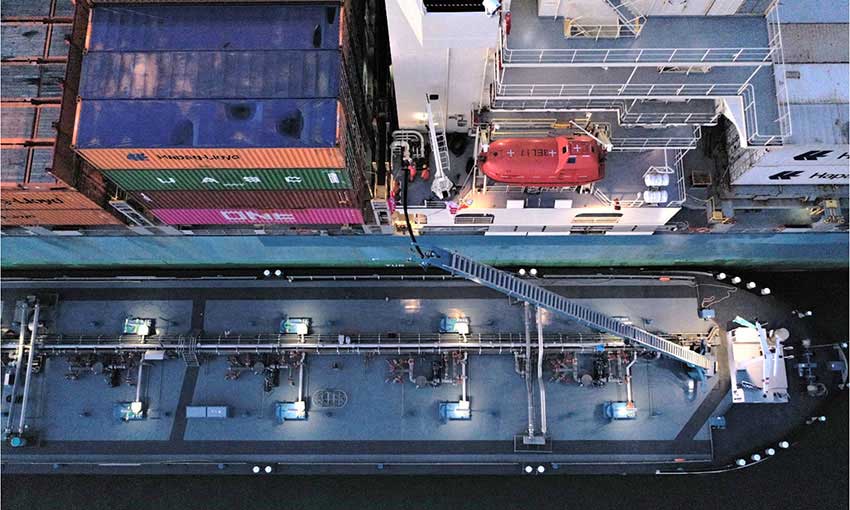OCEAN Network Express has carried out a second trial of what it says is sustainable marine biofuel.
The trial took place onboard MOL Experience, which was refuelled with the marine biofuel during bunkering at the Port of Rotterdam on 7 March.
The specifications of this second trial differed from those of the first, in that the mixing ratio was three times higher in biofuel content than the first trial.
As with the first trial, the bunkering and testing period was performed in collaboration with shipowner Mitsui O.S.K. Lines and sustainable biofuels provider GoodFuels.
The advanced biofuel used in the trial is produced from certified feedstocks labelled as 100% waste or residue, such as used cooking oil.
Biofuels are considered to be carbon-neutral because the carbon dioxide absorbed by the source of the biomass is equal to the carbon dioxide released when the fuel is burned.
Biofuels have gained attention around the world as an environmentally-friendly alternative to fossil fuels.
GoodFuels’ sustainable biofuels are virtually free of sulphur oxides and deliver 80% to 90% well-toexhaust carbon dioxide reduction versus fossil fuel equivalents.
They are technically and operationally equivalent to petroleum-derived marine fuels and require no modifications to marine engines or fuel infrastructure.
GoodFuels only works with renewable feedstocks that cannot be used for any higher quality application or recycling and are therefore regarded as truly sustainable.
ONE general manager of fleet management Takashi Mishima said the second trial was a big challenge because of the higher content ratio of biofuel.
“We are really happy to have completed the trial without any problem. I would like to express my sincere thanks to MOL, GoodFuels and related parties for their collaboration and effort,” he said.
“We will continue to study biofuel usage for ONE’s fleet, as we have the ambition to use biofuels in high ratio and large quantities to decarbonize our fleet.”
GoodFuels chief commercial officer Isabel Welten said the trial was an important step towards accelerating the energy transition across shipping.
“Together with ONE, we are working towards a more structural supply of sustainable marine biofuels, and this second successful trial with ONE shows that there is great momentum behind advanced, sustainable biofuels today and into the future,” she said.
“As some of the world’s first decarbonisation movers, together with ONE and MOL we are proving that solutions to reduce the environmental impact of ship operations already exist, and that marine biofuels will play a crucial role in enabling the industry to viably and profitably decarbonise.”

